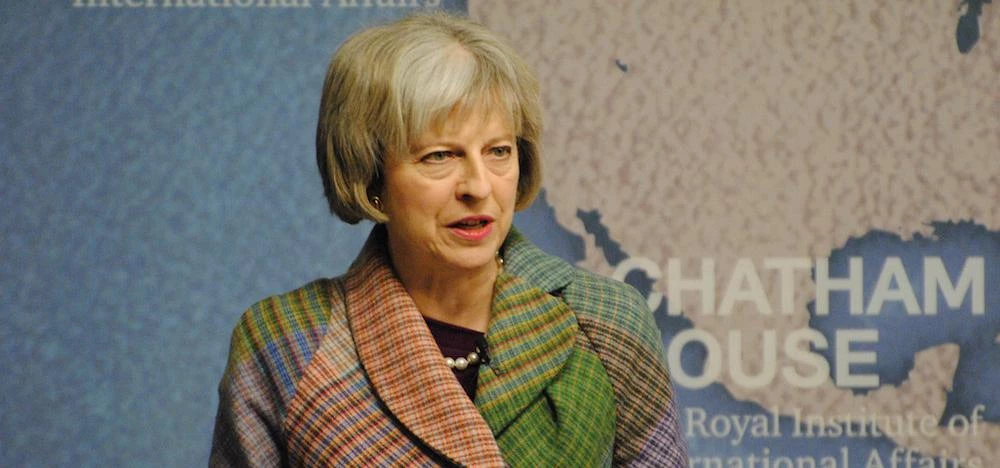
Partner Article
What does Theresa May’s cabinet reshuffle mean for businesses?
In a hectic day at Number 10 yesterday, new Prime Minister Theresa May shocked observers, both inside and outside the Conservative Party, as she unveiled wholesale changes to her cabinet.
Many had tipped May as the continuity candidate, the Tory to steer a smooth transition through the rocky waters of Brexit.
However, in a ruthless cull that included the sacking of some high-profile party figures, Michael Gove chief amongst them, and the rapid promotion of others, namely Boris Johnson; May has set her stall out early to mark distinguish herself immediately from the Cameron-Osborne era.
May’s biggest move has been to completely do away with the Department for Business, Innovation and Skills, set up by Gordon Brown in 2009, and replace it with the newly formed Department for Business, Energy and Industrial Strategy.
Greg Clark
The new department is headed up by former communities secretary and Middlesbrough-born Greg Clark, replacing former business secretary Sajid Javid who now takes charge of communities and local government.
Javid came under intense criticism for his handling of the ongoing British Steel crisis earlier in the year which has likely played a part in the reshuffle as May places a greater emphasis on ‘industrial strategy to get the economy firing.’
Clark, who has previous experience as shadow secretary for energy and climate change, will be charged with plotting the UK’s industrial growth strategy whilst promoting green initiatives to keep emissions in check.
Commenting on his new role, Clark said: “I am thrilled to have been appointed to lead this new department charged with delivering a comprehensive industrial strategy, leading government’s relationship with business, furthering our world-class science base, delivering affordable, clean energy and tackling climate change.”
In further moves, Justine Greening has taken charge at the Department for Education, replacing the outgoing Nicky Morgan, with an expanded brief that now includes the higher and further education responsibilities that formerly resided with the now defunct BIS.
Reshuffle reaction
Yesterday’s major overhaul is a clear signal from May that industrial strategy is to be a significant focus of her premiership, as years of disappointing manufacturing and productivity figures have been complemented by the continuing crisis in the steel industry.
Gareth Stace, Director of UK Steel, has welcomed the appointment of Clark and associated reshuffle in the new ‘souped-up’ department and believes he has all the ’right ingredients for success.
He said: “The [Secretary of State] has already a vast range of experience in all three divisions of this souped-up department and today must now mark the start of ensuring that government finally provides the tools to the UK steel sector in the short-term, so it can invest, thrive and play a significant part in building a stronger UK economy.
“We look forward to working with the new department to push forward the urgent action needed to remove unilateral costs, including energy, business rates and increasing the proportion of British steel used in British construction projects.”
Looking to promote your product/service to SME businesses in your region? Find out how Bdaily can help →
Enjoy the read? Get Bdaily delivered.
Sign up to receive our popular morning National email for free.








 Raising the bar to boost North East growth
Raising the bar to boost North East growth
 Navigating the messy middle of business growth
Navigating the messy middle of business growth
 We must make it easier to hire young people
We must make it easier to hire young people
 Why community-based care is key to NHS' future
Why community-based care is key to NHS' future
 Culture, confidence and creativity in the North East
Culture, confidence and creativity in the North East
 Putting in the groundwork to boost skills
Putting in the groundwork to boost skills
 £100,000 milestone drives forward STEM work
£100,000 milestone drives forward STEM work
 Restoring confidence for the economic road ahead
Restoring confidence for the economic road ahead
 Ready to scale? Buy-and-build offers opportunity
Ready to scale? Buy-and-build offers opportunity
 When will our regional economy grow?
When will our regional economy grow?
 Creating a thriving North East construction sector
Creating a thriving North East construction sector
 Why investors are still backing the North East
Why investors are still backing the North East